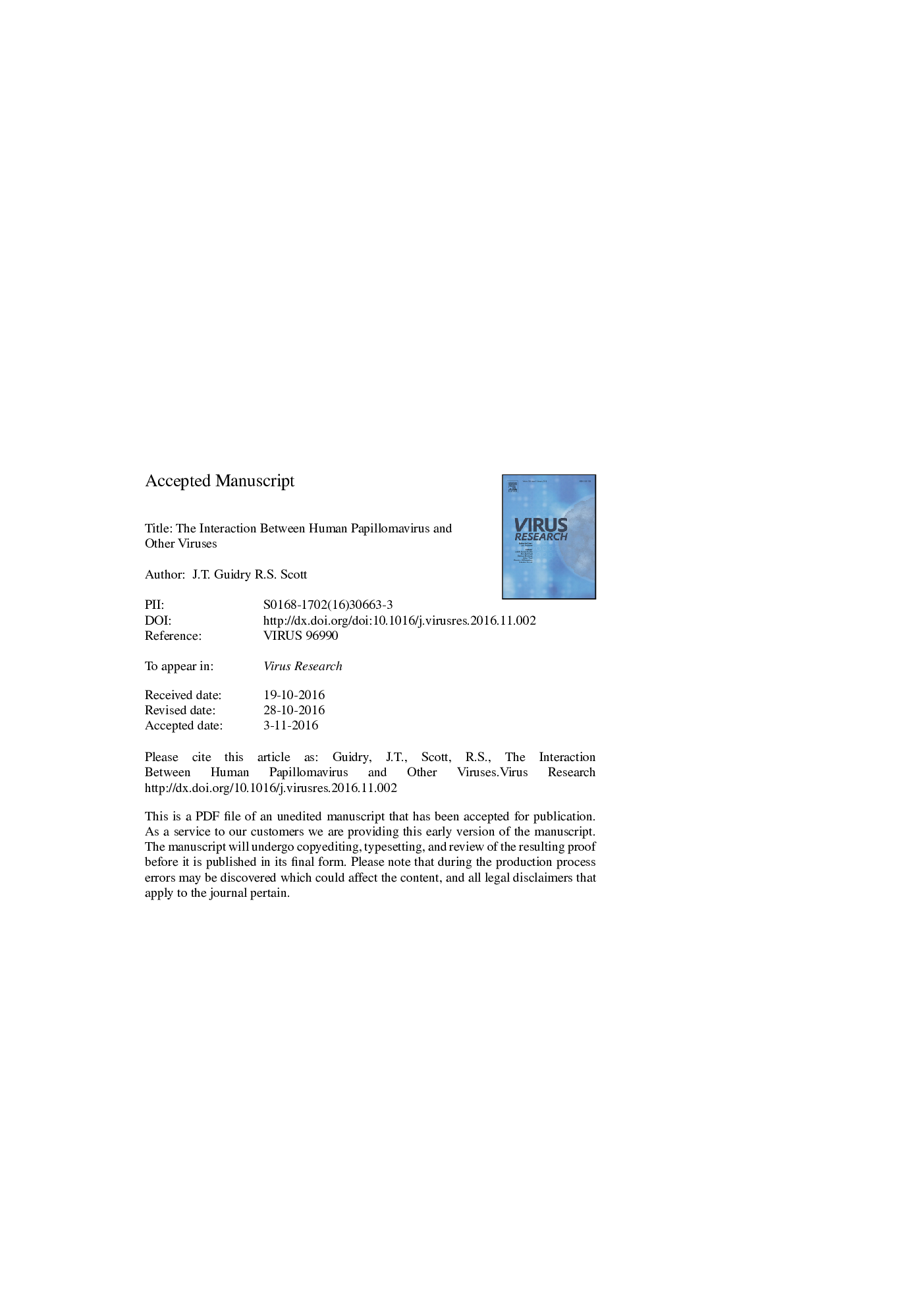| Article ID | Journal | Published Year | Pages | File Type |
|---|---|---|---|---|
| 5675595 | Virus Research | 2017 | 35 Pages |
Abstract
The etiological role of human papillomavirus (HPV) in anogenital tract and head and neck cancers is well established. However, only a low percentage of HPV-positive women develop cancer, indicating that HPV is necessary but not sufficient in carcinogenesis. Several biological and environmental cofactors have been implicated in the development of HPV-associated carcinoma that include immune status, hormonal changes, parity, dietary habits, tobacco usage, and co-infection with other sexually transmissible agents. Such cofactors likely contribute to HPV persistent infection through diverse mechanisms related to immune control, efficiency of HPV infection, and influences on tumor initiation and progression. Conversely, HPV co-infection with other factors may also harbor anti-tumor effects. Here, we review epidemiological and experimental studies investigating human immunodeficiency virus (HIV), herpes simplex virus (HSV) 1 and 2, human cytomegalovirus (HCMV), Epstein-Barr virus (EBV), BK virus (BKV), JC virus (JCV), and adeno-associated virus (AAV) as viral cofactors in or therapeutic factors against the development of genital and oral HPV-associated carcinomas.
Related Topics
Life Sciences
Immunology and Microbiology
Virology
Authors
J.T. Guidry, R.S. Scott,
